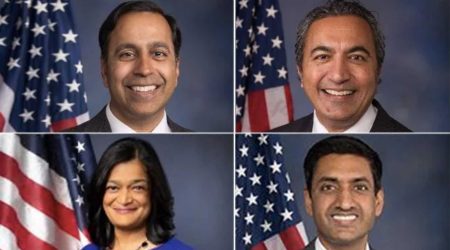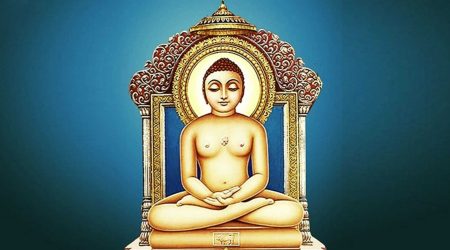By Bal Ram Singh, PhD
Keeping one’s word (vachan vaddhata) and looking after others’ welfare (parahita) were the two cardinal principles of Ram’s life. In the Ramacharitmanas by Goswami Tulsidas, the word parahita appears 13 times, either as para hita or parahita, generally meaning the same as the welfare of others. One of these references appears in the Uttarakand, where Tulsidas refers Bhagvan Ram uttering the para hita as follows.
परहित सरिस धरम नहीं भाई, पर पीड़ा सम नहीं अधमाई
Para hita sarisa dharma nahiU bhai, para piRa sama nahin adhamai
(Uttarkand 40.1)
There is nothing more virtuous task in this universe than to care about others. All our deeds should be targeted to alleviate pain and problems of others.
The question is who are those others. One needs to the state of mind of the Tulsidas who wrote these lines to get sense of what he may have meant, thus what it means to us today. To begin with, Goswami Tulsidas began writing his Ramcharitmanas when he was in his 60s. Considering the fact that he was exposed to Ramayan story by his Guru Naraharidas when he was less than 10 years old, he had plenty of time to reflect on it, learn through his traveling around Ayodhya, Chitrakoot, and Varanasi, and from Ved, Puran, and six schools of Indian thoughts through his Sanskrit knowledge for direct reading and realizing.
Furthermore, he had to go through a lot of arduous dealings with his contemporary scholars who despised his effort to compose the Ramcharitmanas in Avadhi, rather than in standard of the time Sanskrit. He stuck to his guns on writing in Avadhi to convey the Ayodhya story in Avadhi , but more importantly with his vast experience and knowledge of texts of the time, such a Valmiki Ramayan, Vedas, and many Agam and Nigam literature.
He chose his words carefully, and with appropriate deep sources for the context of the conversation. The line, Parahit saris dharma nahi bhai comes in a context where Ram’s dear brother, Bharat, asks him question on the fundamental values of human beings to be pursued. The word parahita or para hit appears a total of 13 times in Ramacharitmanas, and this is the second time Ram himself is placed in a position to narrate the word.
The other time Ram used parahit was when he was describing the chariot of victory to Vibhishana in Lankakand:
बल बिबेक दम परहित घोरे। छमा कृपा समता रजु जोरे
bal bibek dam parahit ghore. chhama kripa samata raju jore॥79.3॥
Meaning, strength, discretion, self-control and benevolence are its four horses, that have been joined to the chariot with the cords of forgiveness, compassion and evenness of mind.
Parahita is thus a crucial term for overcoming problems in this world. It’s deeper meaning is derived from the concept of Para and Apara knowledge, with Para referring to the brahmagyan, whereas the apara referring to the Maya or illusory knowledge in this world.
द्वे विद्ये वेदितव्ये इति ह स्म
यद्ब्रह्मविदो वदन्ति परा चैवापरा च ॥
dve vidye veditavye iti ha sma yadbrahmavido vadanti parā caivāparā ca
(Mundakopnishad, 1.4)
Meaning, two kinds of knowledge must be known-that is what the knowers of Brahman tell us. They are the Higher Knowledge and the lower knowledge.
Further,
तत्रापरा ऋग्वेदो यजुर्वेदः सामवेदोऽथर्ववेदः
शिक्षा कल्पो व्याकरणं निरुक्तं छन्दो ज्योतिषमिति ।
अथ परा यया तदक्षरमधिग्म्यते ॥
tatrāparā ṛgvedo yajurvedaḥ sāmavedo’tharvavedaḥ
śikṣā kalpo vyākaraṇaṃ niruktaṃ chando jyotiṣamiti.
atha parā yayā tadakṣaramadhigamyate
(Mundakopnishad, 1.5)
Of these two (Para and Apara), the lower knowledge (apara) is the Rig-Veda, the Yagur-Veda, the Sama-Veda, the Atharva-Veda, siksha (phonetics), kalpa (rituals), vyakaranam (grammar), nirukta (etymology), chhandas (metre) and jyotis (astronomy); and the Higher Knowledge (para) is that by which the Imperishable Brahman is attained.
Looking from a scientific analysis of how para (परा), which usually means others, but could also mean, inviting to transcend or go beyond, could get one to reach the Brahman, the ultimate. In that case, Para hita sarisa dharma nahiU bhai will truly be a matchless way of practicing dharma which means practicing of the truth. According to the Merriam Webster dictionary, hita (हित) is the past participle of the verbal root dha (धा) ‘put’, suggesting Para hita would mean where the para is placed, implying where the Brahman is placed.
A personality like Ram explains in deeds how parahit allows the paravidya to be placed in others for one to go beyond oneself. In this world, that is done by placing others’ interests ahead of us to realize how that helps us observe that is not me or for me, and in the process it helps us eventually to realize that those others are not me or like me (neti neti, not this, not that), forcing us to eventually conclude I am unique, allowing eventually to transcend the world in favor of the Brahman that one represents.
In this way, the parahit indeed facilitates realizing the meaning of self or swartha (स्वार्थ) through practicing parmaratha (परमार्थ). This is perhaps one of the most meaningful realization of self through the practice of serving others to eventually transcend them, a teaching of Ram to his most ardent dharma following brother, Bharat. Parmartha and Parahit are thus essential for one’s self-realization (swartha) or enlightened state.
——————————-

Balram Singh is a Professor and the President of the Institute of Advanced Sciences, Dartmouth, Massachusetts, researching Ayurveda, Yoga, Vedic education, and Vedic social and political traditions. He is also adjunct faculty at Jawaharlal Nehru University (JNU), New Delhi.










